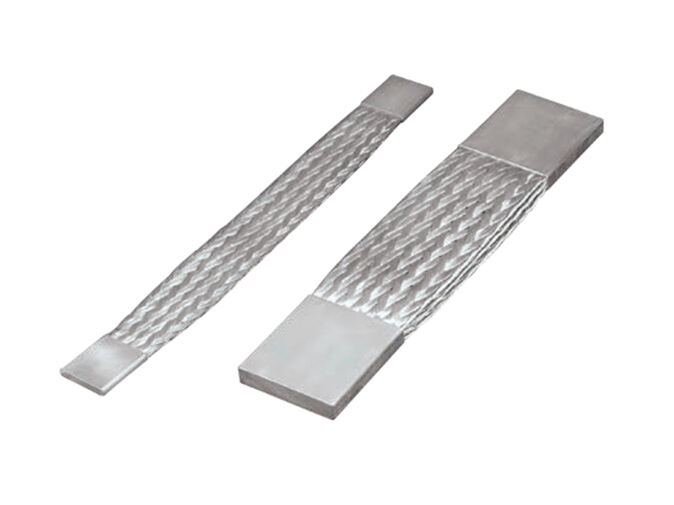Ever wonder how electricity travels? It seems as though we think of almost every other element in our periodic table but this one is responsible for so much that we take for granted. Busbar from kinto is an important part of this process. A busbar is nothing but a metallic strip capable of conducting and transmitting electrical current within an electrical system. The kind of material used in the construction process is imperative as it ensures that every other part works perfectly and to its full potential. Today in this article, we will focus on different materials that are used to make busbars and which one would be most suitable for conducting electricity effectively!

5 Tips for Selecting a Busbar Material
It can be difficult to choose the right busbar material. Here are a few things to consider. The first thing to do before installing a busbar is calculate how much amount of electricity has to flow through this bus-bar. This is known as the current and it tells us how strong the electricity is. Secondly, you should consider the temperature of busbar during application as some materials have a limited capability to withstand high temperature. Finally, how much it costs and this is a biggie because we all need to save our money. ResponseEntity - action floods through the system. busbar cable are typically made out of either copper or aluminum.
One of materials - copper, is ideally suited for fabrication busbar. It is said to be a High Conductor, conducting electricity very proficiently. Besides the fact that copper is much less likely to rust at any speed, thereby extending its usable life. The disadvantage is that copper costs more than aluminium, but also weighs a little extra. Although, this added weight can often times make it more difficult and cumbersome to install. Aluminium, on the other hand) is lighter and less expensive. This also makes it more manageable for you to install. Yet, aluminum is not a good conductor of electricity like copper and can corrode the material when left to its devices.
Comparing Busbar Materials
Other types of busbar like lighting busbar materials are also silver, gold or brass. It is also important to mention that silver has little resistance and its an excellent conductor of electricity. But silver is truly expensive and so it does not work out for most of the daily needs. Gold is also an excellent conductor, but it's very fragile and isn't actually used in this way some places because too much electricity can wear out the gold (see where new words at old meanings are being shifted quickly). An inexpensive alternative to copper is sometimes used - brass, which does conduct electricity but not nearly as well.
We have to consider various factors while comparing these materials. The first thing we must consider is the electrical conductivity of each material. This is known as conductivity and it is the most significant aspect because this helps for good performance of an electrical system. Secondly, we need to know which type of material is better the retain heat. Different materials can withstand different temperature ranges, which is crucial for the overall safety and efficiency of the system.
We also have to consider their resistance to oxidation. It measures how long any material will last against rusting and corroding. The material that can resist rust become durable and reliable. We also need mechanical strength, as the busbar will be exposed to vibration or physical force, so we have to ensure it can bear that. Last but not least, the price of materials in general. Another practical element here would be the fact that this will determine how much your electrical system costs you in total.
Brazing is suitable for a high-volume production; brazed aluminum busbars are typically produced by an automotive process.
There are several things to consider when selecting your busbar material. To begin with, one of the things you should be considering is how much electric power will flow through your busbar. It must be able to conduct the electricity efficiently without getting too hot or even melting. The temperature of the area in which one is going to install the busbar also matters as this how well or badly material will be performing.
The second place you want to think about is where this busbar will be used. Or if it will be close to salty water or other abusive substances then you need to go with a high oxidation resistant material so It won't rust. The strength of the material is another thing you need to consider as well. For example, if the small busbar is to encounter vibrations or other physical forces in operation it needs to have enough strength to handle those forces.
Last but not the least, take into account a more general cost of material. Copper is pricier than aluminum, but it lasts longer and handles more amps directly. It can also pay to fork out a few more dollars at the outset, as long-term savings result when hardware begins cooling down properly and keeps operating over an extended period.
 EN
EN
 AR
AR
 BG
BG
 HR
HR
 CS
CS
 DA
DA
 NL
NL
 FI
FI
 FR
FR
 DE
DE
 EL
EL
 HI
HI
 IT
IT
 JA
JA
 KO
KO
 NO
NO
 PL
PL
 PT
PT
 RO
RO
 RU
RU
 ES
ES
 SV
SV
 CA
CA
 TL
TL
 IW
IW
 ID
ID
 LV
LV
 LT
LT
 SR
SR
 SK
SK
 UK
UK
 VI
VI
 SQ
SQ
 HU
HU
 TH
TH
 TR
TR
 FA
FA
 MS
MS
 GA
GA
 LA
LA




